South Africa teen pregnancy: Juggling school exams and baby twins
- Published
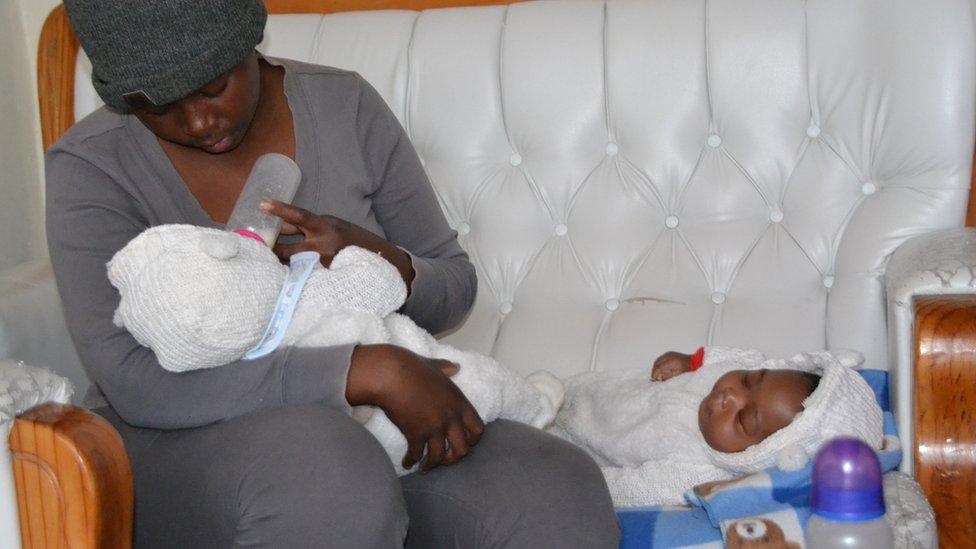
Kholofelo Moholola is juggling motherhood and her school studies
Recently released figures showed that a shocking 6% of female students got pregnant in a single year at a school in South Africa's Limpopo province. The BBC's Pumza Fihlani went to investigate.
When I meet 17-year-old Kholofelo Moholola, she is holding her two six-month-old babies, one in each arm, trying to comfort them.
It is feeding time and they are restless.
Kholofelo was one of 27 girls who became pregnant in the same year at the Molautsi Secondary School - out of 438 female pupils aged between 15 and 19.
The young mother describes her children as "the most precious diamonds". But life is hard.
She lives in the village of Blood River near Polokwane, the main city in Limpopo, which is a rural and sparsely populated province where poverty runs deep.
Kholofelo's unemployed 35-year-old mother and her 53-year-old grandmother have to look after the children while she is at school.
'They are innocent'
Hundreds of thousands of teenagers across the South Africa are currently writing their school-leaving exams.
Kholofelo has to cope with these vital tests while juggling feeds, sleep, seemingly endless cries and nappy changes.
She is also grieving the unexpected loss of one of the triplets she gave birth to - she now refers to the living pair as "the twins".
"I need to do well in school; I have to make something of my life for the sake of my children. They are innocent. I owe them a good life," she says, her eyes welling up.
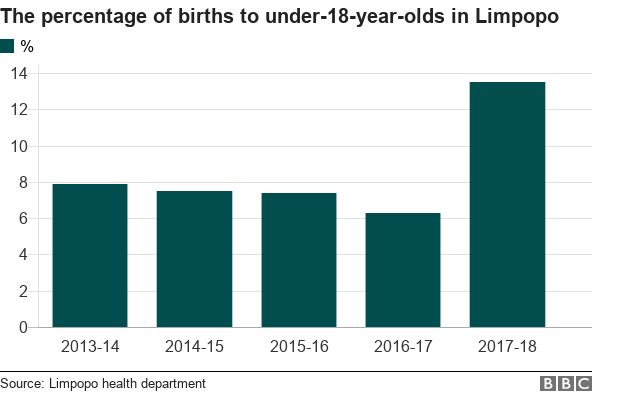
But the chances of a good life seem slim.
Their father is a 19-year-old fellow student. He has no financial means to help look after the children, and has to rely on the good graces of family members.
Driving through the province, I see young people milling around on the streets, many in school uniform.
Authorities say because of the lack of after-school activities to keep them occupied, alcohol and sex become easy escapes.
'Sugar daddies' and HIV
Teenage pregnancy is a big problem in South Africa.
It is a particularly pernicious problem in rural areas, where young girls hoping to escape poverty make easy prey for older men, known here as "blessers" or "sugar daddies".
We drive further into Limpopo to an area called Dididi, a drive of about four hours from Kholofelo's village.
It is home to a cluster of small villages. A total of 36 girls, aged between nine and 19, became pregnant here this year.
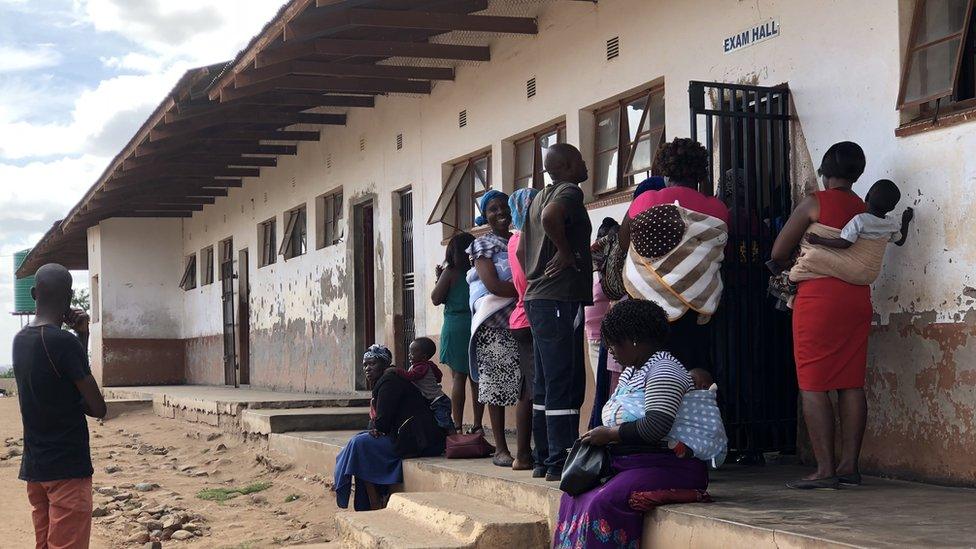
Concerned parents have been talking to the school authorities to see what can be done
Thirteen of them are now HIV-positive, according to Limpopo health authorities.
"In the case of the 13, both parents tested negative for the virus. Where are they getting this virus, if not from older men?" asks Limpopo Health Minister Phophi Ramathuba.
"If these children were only sleeping with each other we wouldn't be talking about HIV infections, we would be talking about teenage pregnancy. Now we are also dealing with new HIV infections in teenagers here," she adds.
Parent-teacher meeting
The Dididi community is also concerned. Scores of parents convened a meeting at a local secondary school where at least nine pupils are currently pregnant.
The school authorities would not allow cameras inside but the principal Mashudu Maboho says the rate of teenage pregnancies was worrying.
"This is not a problem for a school, this is a problem for the entire community. Parents want answers but teachers are not equipped to deal with this," he says, before leaving to address the anxious crowd.
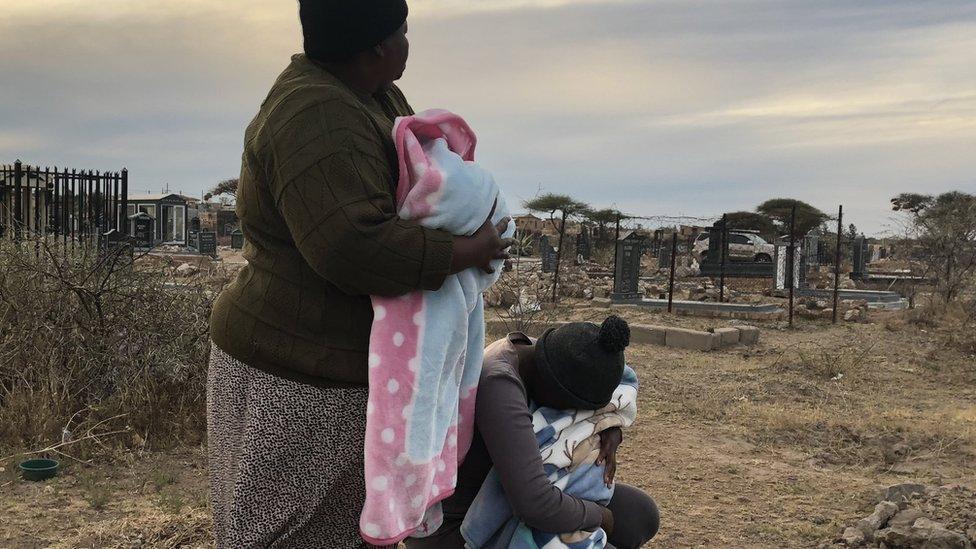
Kholofelo is struggling to come to terms with the loss of her child
It is estimated that 182,000 South African teenagers become pregnant each year, and many are still in school.
In Limpopo, a total of 16,238 children were born to teenagers in the province's state-owned hospitals between April 2017 and March 2018.
Of these, 378 were 10 to 14 year-olds while the remaining 15,860 were 15 to 19 year-olds.
According to a 2016 study by the South Africa Demographic and Health Survey, children born to very young mothers are at increased risk of sickness and death - something Kholofelo sadly found out first hand.
Baby Bontle died just two days after birth because her lungs had not fully developed, leaving behind siblings Neo and Tshiamo.
"It has been hard and I've been finding a way to cope. At least I still have these two. She couldn't breathe on her own, she was weak and didn't make it," says the young mother, weeping.
Studies show that teenage mothers are more likely to have health problems such as hypertension and difficult deliveries, which sometimes lead to death.
They account for 36% of maternal deaths every year, despite only accounting for 8% of births.
What can be done?
The question now is what can be done to change things?
My time in Limpopo speaking to provincial authorities makes it clear that there are no easy answers.
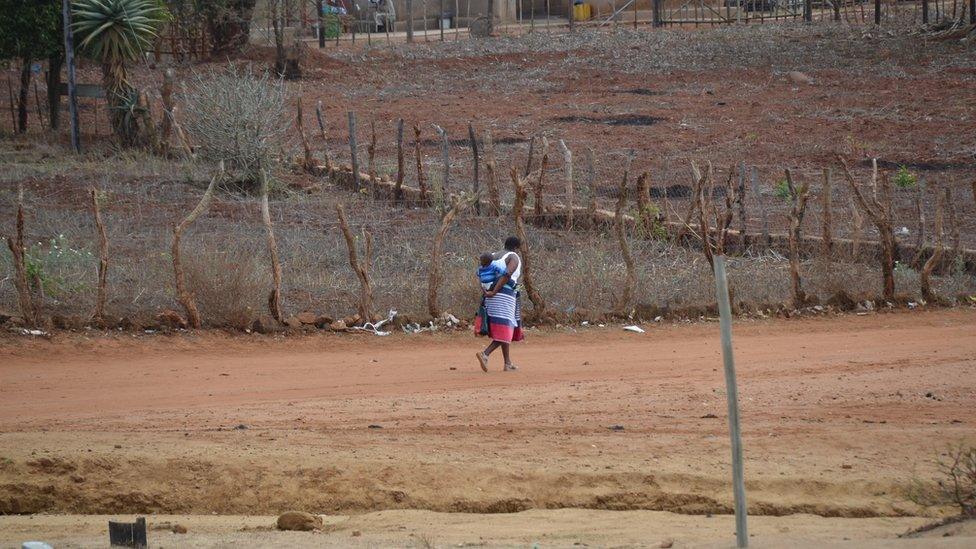
Limpopo is one of South Africa's poorest provinces
Still, authorities are worried that their messages on safe sex are falling on death ears.
I ask Kholofelo about this.
She pauses, looks at her grandmother, who at this point has joined her on the couch to help carry baby Neo.
"Honestly, we learn about it at school. I am not sure if my boyfriend used a condom but we know we should use them."
"Maybe we as young people just don't want to listen to the advice we are given. We want to do our own things," she says.
Both she and her grandmother look uncomfortable when the subject comes up as communities here are still conservative.

More from South Africa:

Limpopo's Education Minister Maaria Kgetjepe agrees.
"Rural communities are still reluctant to talk openly about sex. Talking to young people about sex is considered taboo. The problem with that is it does not mean they are not engaging in those activities," he says.
"Learners also tell us there is a lot of judgement and ill-treatment from older nurses when they visit government facilities to ask for contraceptives so this makes them reluctant to approach clinics and hospitals," he adds.
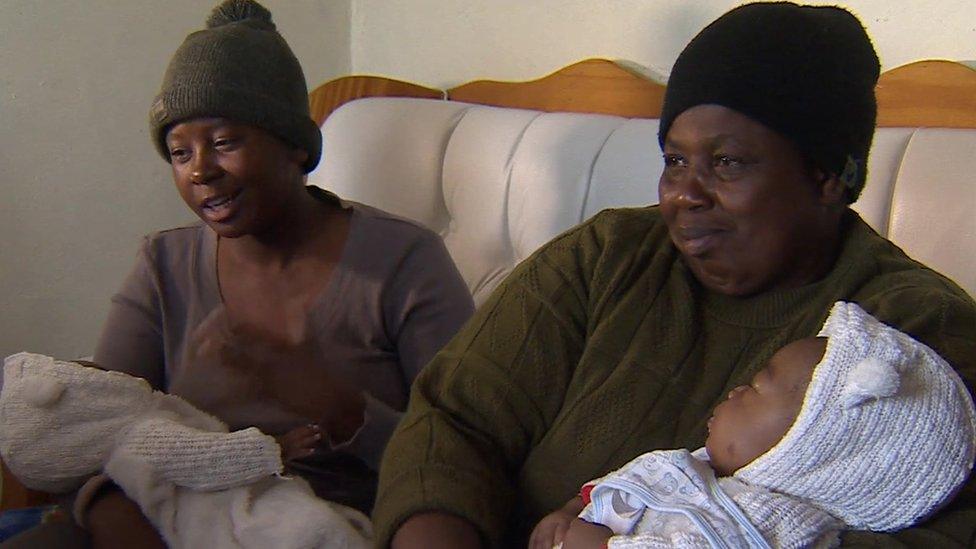
Kholofelo wonders if young people are reluctant to listen to their elders
Back at Kholofelo's home, on the eve of her school-leaving exams, she takes the babies to where their sister is buried.
She believed this will not only bring her good luck but also help her deal with her grief.
The infant's grave is no more than a mound of dirt and the young mother breaks down almost instantly when she arrives.
Moments passed.
Exhausted from crying she finally stands up, dusts herself off and walks out of the cemetery.
- Published4 June 2018
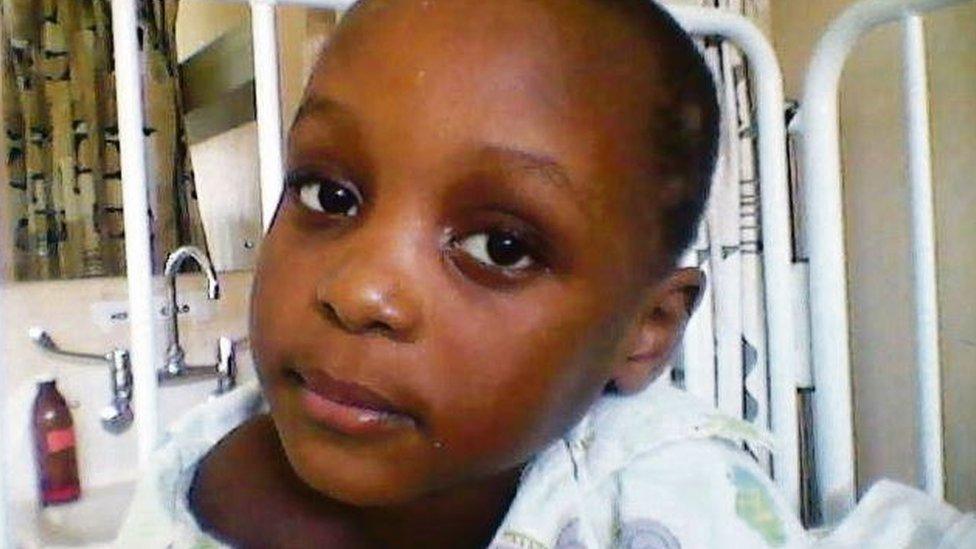
- Published3 September 2013
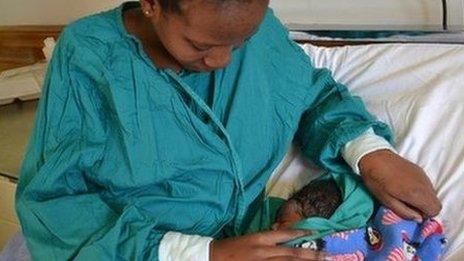
- Published9 July 2024
